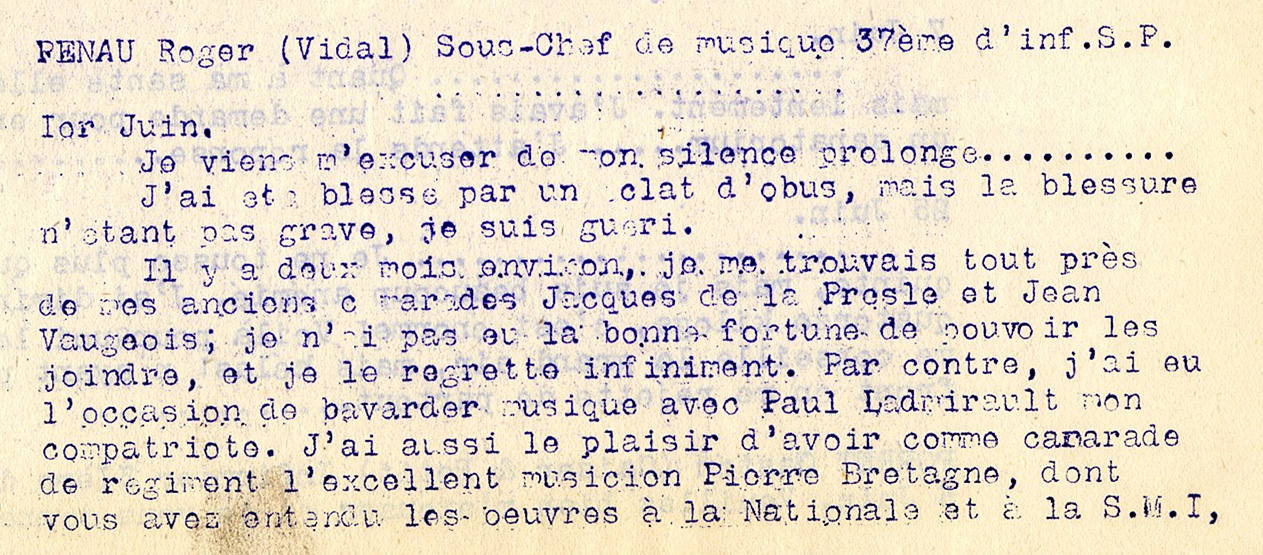Paris-Manchester 1918
Conservatoires in time of war
1917. The Wound
Here, Roger Pénau does not dwell on the wound he sustained. The two regimental citations are just “for your reference”, the Croix de guerre is not even mentioned, and the wound is “not so serious”. His calm and detachment are noteworthy for the contrast that they present to the general atmosphere prevailing in spring 1917, which was marked by strikes at the rear and repeated mutinies at the front.
On the contrary, the letter is tinged with nostalgia by the reference to comrades whom the author just missed seeing: Jacques de la Presle, a frequent contributor to the Gazette, and the cellist Jean Vaugeois.
Translation
PENAU Roger (Vidal[1]), Assistant Bandmaster, 37th Inf.[2]
1 June[3]
I would like to apologise for my lengthy silence. . . . . . . . . . . .
I was hit by a shell fragment; but the wound was not serious, and I recovered.
About two months ago, I found myself very near my old comrades Jacques de la Presle[4] and Jean Vaugeois;[5] much to my regret, I did not have the good fortune of being able to meet them. However, I did have a chance to talk music with my fellow countryman Paul Ladmirault. I am also lucky in having as a comrade in my regiment the excellent musician Pierre Bretagne, whose works you will have heard at the National Music Society[6] and the Independent Music Society.[7]
That is my news. I hope to hear some news from my classmates, and I look forward to receiving before long our dear Gazette, which brings us together and takes us back to our lives as artists before the war.
I would like to wish everybody all the best, and I hope to see you all again soon and “on a permanent basis”, as they say in the army. . . . . .
For your reference, I am sending the text of my two citations (see list of decorated personnel).
[1]Paul Vidal (1863-1931), teacher of music theory, accompaniment and composition at the Paris Conservatoire.
[2]Infantry.
[3]1917.
[4]Jacques Guillaume de Sauville de Lapresle (1888-1969).
[5]Jean Vaugeois (1893-1969).
[6]The National Music Society, established in 1871 by Romain Bussine and Camille Saint-Saëns. Cf. note 3 p. 1.
[7]The Independent Music Society, established by Maurice Ravel, Gabriel Fauré, Charles Koechlin, Florent Schmitt and Émile Vuillermoz in 1909. Cf. note 3 p. 1.
Source
Roger Pénau (1915) Letter to the Franco-American Committee, in: Gazette des classes de composition du Conservatoire, No.10, Paris, December 1915, Hector Berlioz Multimedia Library, Rmb 472 (10), p. 13-14.
Document description: roneod document in violet ink, 21×27 cm.





